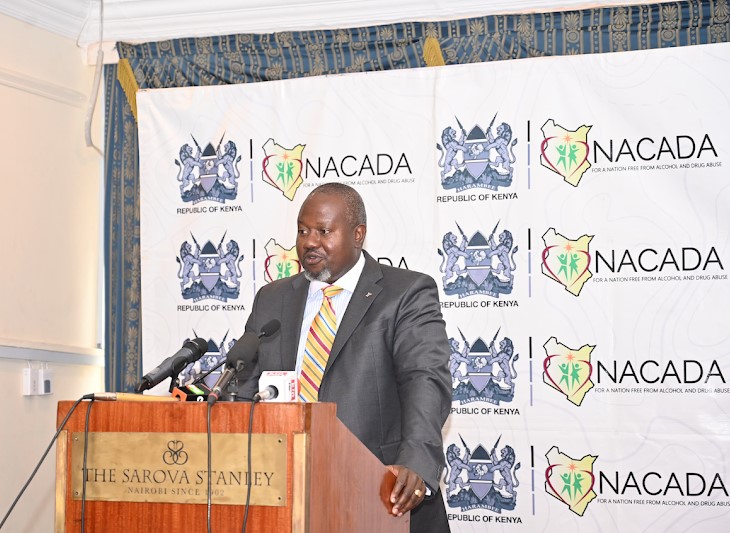NACADA raises alarm over drug abuse in Airbnbs

The National Authority for the Campaign Against Alcohol and Drug Abuse (NACADA) has raised concerns about Airbnbs becoming hotspots for illegal drug trade and consumption.
The National Authority for the Campaign Against Alcohol and Drug Abuse (NACADA) has raised concerns about Airbnbs becoming hotspots for illegal drug trade and consumption.
In a statement on Monday, NACADA CEO Dr Anthony Omerikwa attributed the growing drug abuse problem, especially among young people, to the increasing use of private rental spaces.
The agency noted that its crackdown on illicit drugs in entertainment venues and residential areas has driven traffickers to shift their operations to Airbnbs to avoid detection.
“The enforcement pressure has forced individuals involved in the illegal drug trade to shift their activities to seemingly discreet locations such as Airbnbs, where they attempt to evade scrutiny,”Omerikwa stated.
According to NACADA’s report titled Status of Drugs and Substance Use Among University Students in Kenya, released on February 13, 2025, there has been a surge in cases of drug use in private rental spaces, with some incidents leading to fatal overdoses.
The agency estimates that 23 per cent of young adults aged 18 to 24 have used drugs, with Airbnbs playing a major role in enabling substance abuse.
To combat the issue, NACADA has ramped up surveillance, awareness campaigns, and partnerships with law enforcement, county governments, and private sector stakeholders.
“We are intensifying surveillance, awareness campaigns, and collaborations with the police, county governments, and the private sector to curb this emerging threat,” NACADA reiterated.
The authority has also called for tighter regulations on short-term rental accommodations and urged hosts to exercise due diligence in screening guests. They encouraged Airbnb hosts to report any suspicious activities to authorities for prompt action.
NACADA’s warning follows a recent report that exposed an alarming trend—university lecturers are among those supplying drugs to students.
A survey involving 15,730 university students revealed that nearly half of them use drugs, with their lecturers being among the sources.
The study also found that 59.3 per cent of drug access points for students include canteens, bars, and premises near universities. Shockingly, one in every two university students in Kenya has used drugs or substances of abuse at some point in their lives.
